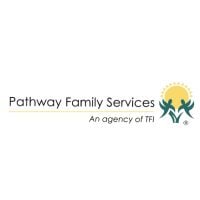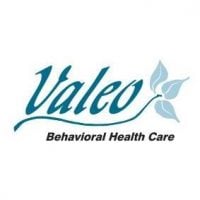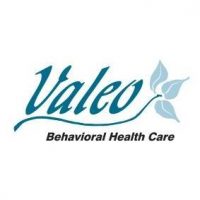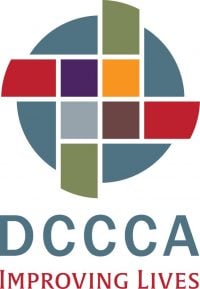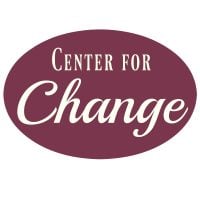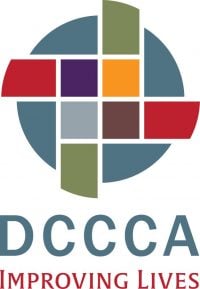Topeka Treatment Center
Drug Rehab Center in Topeka, Kansas
Topeka Treatment Center in Topeka, Kansas is an addiction treatment facility offering a variety of treatments and services for alcohol and opioid addiction, substance abuse, and dual diagnosis, in a safe and supportive environment.
About This Kansas Facility
Topeka Treatment Center, situated in Topeka, Kansas, is a private rehab facility that has been providing comprehensive care for individuals struggling with alcoholism, drug addiction, dual diagnosis, opioid addiction, and substance abuse. With a focus on creating a safe and supportive environment, the center aims to guide patients towards lasting recovery.
• SAMHSA, CARF, and state-licensed facility ensuring high-quality care
• Specialized programs for alcohol and opioid addiction treatment
• Dual-diagnosis care addressing co-occurring mental health issues
• Flexible outpatient options allowing patients to maintain community ties
Accredited by the Substance Abuse and Mental Health Services Administration (SAMHSA) and the Commission on Accreditation of Rehab Facilities (CARF), Topeka Treatment Center adheres to strict standards of care. The center's state license further demonstrates its commitment to providing evidence-based treatments tailored to each individual's needs.
The facility offers targeted interventions for alcohol and opioid addiction, as well as comprehensive care for those battling substance abuse and dual diagnosis. Treatment modalities include detoxification, drug rehabilitation, individual and group counseling, and outpatient services.
Topeka Treatment Center's multi-faceted approach addresses the physical, psychological, and emotional aspects of addiction. By identifying the underlying causes of substance abuse and developing personalized coping strategies, the center empowers individuals to achieve and maintain sobriety while improving their overall quality of life.
Genders
Ages
Modality
Additional
Accreditations
State License
SAMHSA

CARF
The Commission on Accreditation of Rehabilitation Facilities (CARF) is a non-profit organization that specifically accredits rehab organizations. Founded in 1966, CARF's, mission is to help service providers like rehab facilities maintain high standards of care.
Conditions and Issues Treated
Substance abuse typically leads to addiction, which requires specialized treatment programs at Topeka Treatment Center to address. Many people benefit from inpatient drug rehabilitation, which includes inpatient acute care and residential rehabilitation. Other levels of care include intensive outpatient therapy, individual counseling, and support groups. Family therapy is also an essential part of treatment for substance abuse.
A combination of treatments is often needed to treat drug abuse issues effectively. In the case of drug abuse, there is no easy answer or one-size-fits-all cure.
Opioid addiction treatment helps people addicted to opioids in Kansas curb their drug use. The selection of a treatment setting depends on the severity of the addiction. Mild cases are usually treated in outpatient facilities; severe cases need hospitalization or treatment in a residential facility. Doctors use medicines along with counseling and behavioral therapies to treat the addiction. The treatment includes medication, counseling and therapy. It can also include group counseling, individual counseling and family counseling.
People with dual diagnosis have coexisting addiction and a mental disorder. 9.2 million US adults had a co-occurring disorder in 2018, so not just limited to Kansas residents. Best treatment combines medication, psychotherapy (talk therapy), support group, and inpatient rehabilitation. Sometimes, complementary therapies – yoga, massage, and acupuncture – may also be used.
Levels of Care Offered at Topeka Treatment Center
This center offers a variety of custom treatment tailored to individual recovery. Currently available are Detox, Drug Rehab, Dual-Diagnosis, Outpatient, with additional therapies available as listed below.
Detox is the stage of recovery where the drugs or alcohol are entirely removed from your body. There are two different ways to detox, with medications and without. For many drugs and alcohol, the acute phase of detox can be completed in a number of days.
Outpatient treatment plans cover diagnosis, detoxification, management, and counseling. They are a popular option for those who have graduated from inpatient facilities. Services in Kansas include medication-assisted treatment (MAT) and individual and group therapy.
Therapies & Programs
Family therapy is a set of therapeutic approaches that assumes that the entire family is a system. It utilizes the strengths and resources of the family to help the patient refrain from resorting to substance abuse. The impact of substance abuse is not just on the patient but on the entire family. Family therapy ensures that the patient gets adequate support from the family members after the treatment making the recovery process sustainable
- Family therapy guides all the members of the family to help the patient.
- It helps to repair relationships and improve communication between family members.
- It helps to keep the patient engaged and motivated throughout the treatment.
Group therapy is an important tool in recovery. Finding a peer group in Topeka, KS and others who relate to your situation is a fundamental tool for recovery at Topeka Treatment Center. Addiction tends to lead to isolation and feelings of uniqueness. The accountability and friendship that is found in group therapy can be more effective than any single other treatment approach. This is generally introduced early in recovery and is recommended as a lifetime treatment habit.
Trauma therapy is a way of addressing trauma while in a safe situation in order to heal. This may involve Topeka Treatment Center managing individual or group counseling or both. Other forms of therapy have been proven to assist in healing past traumas.
A type of cognitive-behavioral therapy is Dialectical Behavioral Therapy. It is intended for those who are vulnerable to self-harm and suicidal thoughts. Topeka Treatment Center aims to help patients understand the connection between their feelings, emotions, and behaviors and provide them with the tools to make a difference in Topeka, KS. For those whose addictions and habits originate from severe mental health problems, it is beneficial.
Negative feelings are common in substance abuse disorders. If not recognized, they can cause co-occurring disorders. CBT involves strategies that help to change the thinking and behavioral pattern. It can be administered as a monotherapy as well as a part of combination therapy.
Rational Emotive Behavioral Therapy (REBT) is a variation of Cognitive Behavioral Therapy (CBT) that helps people understand how maladaptive, negative, and habitual thoughts and feelings lead to bad life choices. REBT is based on the idea that people operate under many irrational but habitual patterns of thought that fuel harmful practices.
The first three steps depend on the patient, so they are more specific and situational. The succeeding four steps center on practical issues brought on by substance abuse. Steps 8 and 9 deal with the social and emotional repercussions of addiction, encouraging patients to make amends to people they have wronged. These are followed by two steps revolving around the further exploration and reinforcement of Steps 1 to 9.
The last step requires an individual to extend a helping hand to people who are still in the early stages of their recovery.
Payment Options Accepted
For specific insurance or payment methods please contact us.
Additional Details
Specifics, location, and helpful extra information.
Topeka, Kansas 66611 Phone Number(785) 266-4100 Meta DetailsUpdated April 15, 2024
Staff Verified
Patient Reviews
There are no reviews yet. Be the first one to write one.
Topeka, Kansas Addiction Information
About 42% of adults in Kansas have tried an illicit drug at some point in their lives. 12.4% of the state population uses illegal drugs and 4.5% abuse alcohol in a given year. 15.16% of all deaths in Kansas between 2008 and 2017 were caused by either drugs or alcohol.
9.8% of people in Topeka, Kansas, aged 12 or older had used an illicit drug. The number of meth lab seizure events in Kansas rose 48% over the same period. Commonly misused illicit substances in Topeka include MDMA ( ecstasy ), LSD, methamphetamine, and cocaine. There are several different addiction treatment programs in Topeka, Kansas. Some of the programs include inpatient, outpatient, day-treatment programs, and sober homes.
Treatment in Nearby Cities
- Ellsworth, KS (138.2 mi.)
- Moundridge, KS (113.6 mi.)
- Emporia, KS (49.5 mi.)
- Marysville, KS (77.3 mi.)
- Salina, KS (104.3 mi.)
Centers near Topeka Treatment Center
The facility name, logo and brand are the property and registered trademarks of Topeka Treatment Center, and are being used for identification and informational purposes only. Use of these names, logos and brands shall not imply endorsement. RehabNow.org is not affiliated with or sponsored by Topeka Treatment Center.




